Sudan
It was a funeral no one had envisaged: Sadig Abbas’ lifeless body was lowered hastily into a shallow unmarked grave in Sudan’s capital, Khartoum, not long after dawn.
Even the few family members and neighbours who could attend were distracted, scouring the cemetery’s surroundings for warnings of incoming fire, recounted Awad el-Zubeer, a neighbor of the deceased.
Thankfully, none came.
Nearly four months of violent street battles between the Sudanese Army and the paramilitary known as the Rapid Support Forces (RSF) have made funerals a near impossibility in Khartoum.
Amid the chaos, residents and local medical groups say corpses lie rotting in the capital’s streets, marooned by a conflict that shows few signs of easing.
“I do not remember where he was buried exactly, the burial process was very fast and there was no possibility of making any mark to know the exact place of burial," said el-Zubeer.
There is limited data on the casualties in Sudan.
The country’s health minister, Haitham Mohammed Ibrahim, said in June that the conflict has killed upward of 3,000 people but there has been no update since.
The true tally is likely far higher, say local doctors and activists.
Likewise, no medical group has provided a toll on the number of unburied corpses, with mass graves and widespread ethnic killings being uncovered in the country’s southern Darfur region.
Most civilians from the capital have been killed in crossfire, as the once sleepy city turned into an urban battlefield, the country’s doctors union says.
Others died because they were unable to access basic medicine, while some reportedly starved to death, imprisoned by the gun battles that raged outside.
In times of peace, their funerals would have been large affairs lasting days.
In Sudan, it is common for thousands to pay respects to the deceased.
In accordance with Sudanese Islamic tradition, corpses are usually washed and blessed before being buried in cemetery graves dug by family members.
Seven former and current residents from the capital area told the Associated Press that the conflict between the country’s two top generals, army head Gen. Abdel Fattah Burhan and RSF commander Mohammed Hamdan Dagalo, has shattered this tradition.
Three of those who spoke did so on condition of anonymity out of fear of reprisal.
Several said reaching any of the capital’s roughly two dozen cemeteries has proved impossible when they were trying to bury family members, friends, or those with whom they were trapped.
Adnan Hizam, ICRC spokesperson in Sudan said they were aware of the situation and called for bodies to be returned to their families so burials can take place according to religious and custom practices.
Hizam added that they were supporting Sudan's Red Crescent volunteers to carry out the challenging task of collecting the dead bodies "through providing body bags, protective equipment, plus we provide them with the technical training so they can manage to do this task in a very proper manner.“




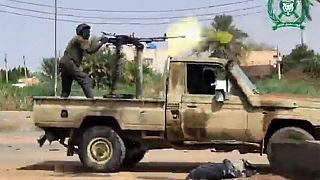
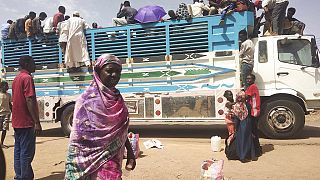
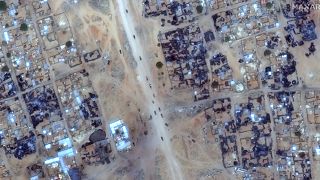
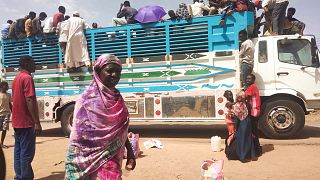
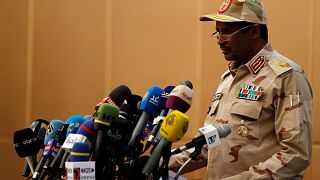



01:06
Sudan: Thousands flee, more remain trapped in RSF attack on Darfur camp
01:02
Sudan accuses UAE of contributing to genocide
01:13
Sudan: At least 89 killed in paramilitary attack
Go to video
Rapid Support Forces vows war with Sudanese army is not over
01:32
Sudanese celebrate Eid al-Fitr with hope amid ongoing conflict
01:14
Sudanese army chief vows to defeat RSF